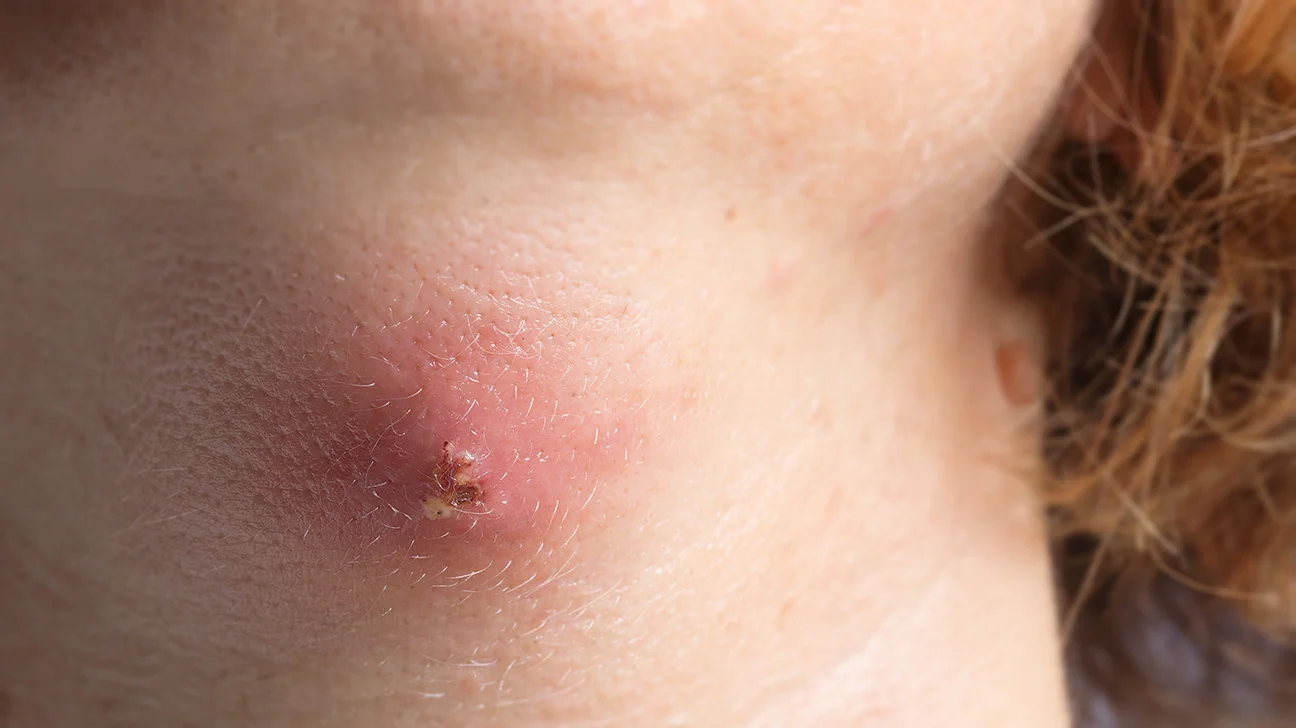How serious is an abscess?

Those experiencing pimples on the face, even small ones, can surely understand how frustrating it could be to have one. It can be painful and the urge to pick at it could make one feel furious knowing that picking or popping it would end up in scarring. Now, imagine when this condition is larger and deeper under the skin, some even in internal organs. Sounds quite hurting, right? This can be suspected as abscess. Health screening might help to get a clear picture of a person’s health condition. In this article, we will be talking about abscess and how serious it can get.
Firstly, what is abscess? Abscess is a collection of pus usually caused by bacterial infection. It is also known as boil that could be accumulated in or under the skin and may involve any abdominal organ or spaces between organs. Skin abscess is usually visible as reddish swollen or bump on the skin filled with pus, have round shape, feels firm and squishy upon touch due to the thick layer of membrane covering the pus inside and at times have a pinpoint opening in the center known as punctum. A person with skin abscess usually feels pain in the abscess area and experiences fever with swollen lymph nodes. Skin abscess can develop in any part of the body but most commonly appear on the face, chest, lower back and the buttock area including genitals or anus.
On the other hand, abscess to the internal organ or inside the abdomen is known as intra abdominal abscess. It can be difficult to identify this type of abscess as it is not visually visible to the naked eyes but it can be suspected when a person has a history of surgery or trauma and has risk factors such as diabetes and inflammatory bowel disease. Symptoms are pain in the affected area, fever, generally feeling sick, fatigue, loss of appetite and weight loss.
Back to the question of how serious it could get, we must understand how abscess heals or resolves. For skin abscess, most small ones resolve on their own by draining naturally or drying up and shrinking before disappearing. At times, home treatment by placing warm compress at the affected site may help to fasten its healing process. However, for larger abscess or abscess that does not resolve even after home remedies, physicians would prescribe antibiotics and drain the abscess through a minor procedure of insertion needle or small incision to the skin to release the abscess. For intraabdominal abscess, treatment revolves around antibiotics and drainage either percutaneous drainage using needle through the skin to reach infection site where the abscess is or surgical drainage to help repair condition causing the abscess. In most cases, a drainage catheter is left inside the abscess cavity for healthcare professionals to observe before removing it when it is confirmed that the abscess is fully drained.
It is important to treat abscess as an untreated abscess may lead to serious complications. Some of the complications are additional skin abscess and tissue death around the abscess area. Although it is rare such complications happen, once it does, it can lead to other life-threatening conditions. This is because infection from the abscess may spread through the bloodstream and affect the whole body. It can lead to a severe infection called sepsis. This can get worse if the infection is caused by MRSA or methicillin-resistant Staphylococcus aureus because this type of infection is resistant to many common antibiotics usually used in healthcare settings and can be difficult to treat. Thus, if you find yourself or anyone you know experiencing skin abscess that is large or have symptoms associated with intra abdominal abscess, do seek medical advice for treatment and to avoid further complications.








